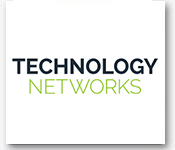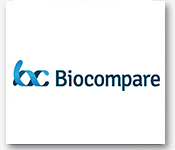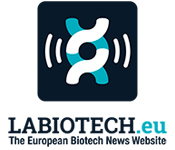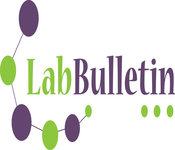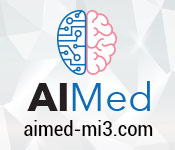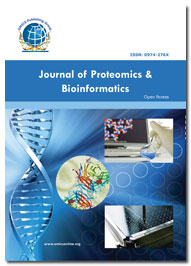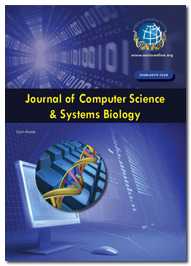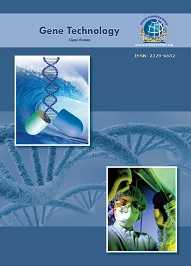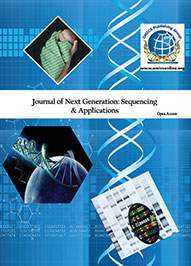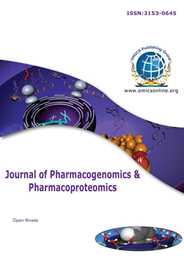Theme: Integrating Bioinformatics & Interdisciplinary Sciences
Bioinformatics Congress 2016

ConferenceSeries Ltd would like to take this amazing opportunity to welcome everyone interested in Bioinformatics to “7th International Conference on Bioinformatics” that is scheduled at Rome, Italy during October 24-25, 2016. The theme of the conference is ‘Integrating Bioinformatics and Interdisciplinary Sciences’.
Bioinformatics Congress 2016 includes topics such as Evolutionary Bioinformatics, Proteomics, Structural Bioinformatics, Genomics, Systems Biology, Biostatistics, Algorithms & Databases, Clinical Informatics, Immunology & Drug Discovery and Clinical Case Reports.
The conference Bioinformatics Congress 2016 is a specially designed bundle conference that involves an ample range of critically significant sessions. It would lay a podium for the interaction between experts all over the world and intends in advancing the scientific discoveries.
Theme: Integrating Bioinformatics and Interdisciplinary Sciences
Track 1: Evolutionary Bioinformatics
Evolutionary Bioinformatics is an advanced discipline that addresses the practice of data processing and the engineering of data for the investigation of biological evolution. Amassing of information at the huge scale has turned out to be progressively cost-efficient through latest advances in high-throughput genotyping and sequencing innovations. It sees genomes as medium for conveying different types of data through the generations from the past to present. The study of evolutionary biology uncovers that living beings of different types which were previously oblivious originated over the span of numerous eras mostly through moderate and progressive alterations.
Relevant Conferences:
7th International Conference on Proteomics, October 24-26, 2016 at Rome, Italy; International Conference on Next Generation Sequencing during July 21-22, 2016 at Berlin, Germany; 6th International Conference on Computational Systems Biology during August 22-23, 2016 at Philadelphia, USA; Genetic and Evolutionary Computation Conference, June 20, 2016 at Denver, USA; 8th International Meeting on Bioinformatics April 4-6, 2016 at Las Vegas, USA; Evostar 2016 March 30-April 1, 2016 at Porto, Portugal; BIOTECHNO 2016, June 26-30, 2016 at Lisbon, Portugal; 13th Conference on Molecular Epidemiology, May 10-13 2016 at Antwerp, Belgium.
Track 2: Structural Bioinformatics
Structural bioinformatics is a sub discipline of bioinformatics that deals with the three dimensional structures of biomolecules. This field portrays the goals to create methods for manipulating information about biological macromolecules and the application of these methods to solve problems in biology and creating new knowledge. It attempts to model and discover the basic principles underlying biological machinery at the molecular level. Structural bioinformatics combines applications of physical and chemical principles with algorithms from computational science. With the success of the genome sequencing projects, the evolution of high-throughput methods for expression analysis and compound identification, structural bioinformatics is now resurgent and is doing its part to accelerate the drug discovery process. The techniques that structural bioinformatics involves are particularly valuable in the area from target identification to lead discovery. Structural bioinformatics can be used for function and ligand prediction in the case of novel targets.
Relevant Conferences:
International Conference on Structural Biology during June 23-24, 2016 at New Orleans, USA; 2nd International Conference on Transcriptomics during September 12-14, 2016 Philadelphia, USA; 6th International Conference on Computational Systems Biology during August 22-23, 2016 at Philadelphia, USA; 7th Conference on Bioinformatics Models February 21-23, 2016 at Rome, Italy; 14th Asia Pacific Bioinformatics Conference during January 11-13, 2016, San Francisco, USA; 8th Conference on Bioinformatics during April 4-6, 2016 at Las Vegas, USA; Protein Function in Time and Space, July 16-17, 2016 at Lewiston, USA; 23rd Jerusalem School in Life Science during January 10-14, 2016 at Jerusalem.
Track 3: Emerging Trends in Proteomics
Proteomics is a branch of molecular biology that is concerned with the systematic, high-throughput approach to protein expression investigation of an organism or a cell. It is a large-scale comprehensive study of a specific proteome, including information on protein affluence, their variations and alterations, along with their interacting partners and networks, in order to discern cellular processes. Proteomics enables the understanding the structure, function and interactions of the entire protein content in a specific organism. Bioinformatics for proteomics has grown significantly in the recent years. The ability to process a high amount of data together with high specificity and precision of the new algorithm in the protein description, characterization and quantization makes it possible to obtain a high amount of elaborated data. Bioinformatics tools for proteomics have diverse applications ranging from simple tools to compare protein amino acid compositions to refined software for massive protein structure determination.
Relevant Conferences:
7th International Conference on Proteomics during October 24-26, 2016 at Rome, Italy; 2nd International Conference on Lipid Science and Technology, October 06-08, 2016 at Miami, USA; World Congress on Amino Acids December 08-09, 2016, Dallas, USA; 10th Annual Congress of the European Proteomic Association, June 21-25, 2016 at Istanbul, Turkey; 18th International Meeting on Proteomics, March 30-31, 2016 at Istanbul, Turkey; 15th Annual World Congress September 18-22, 2016, Taipei World Trade Centre; 3rd Conference on Protein and Proteomics March 2-4, 2016 at Beijing, China; Quantitative Proteomics, April 4-5 2016 at Chester, UK.
Track 4: Emerging Trends in Genomics
Genomics includes the study of genomes, particularly the set of techniques, analytical methods, and scientific questions related to the study of complete genomes. Scientists have progressed from the analysis of a small number of genes to the analysis of thousands of genes, from the study of the units of inheritance to the whole genome of an organism. Genomics straps the availability of complete DNA sequences for entire organisms by the latest next-generation sequencing technology. Next-generation sequencing has led to spectacular improvements in the speed, capacity and affordability of genome sequencing. Genome sequencing is expected to have the most impact in characterizing and diagnosing genetic diseases; for appropriate treatment; and providing information about an individual’s likely response to treatment to reduce adverse drug reactions. Genomics and bioinformatics are now poised to revolutionize the healthcare system by developing customized and personalized medicine.
Relevant Conferences:
4th International Conference on Plant Genomics during July 14-15, 2016 at Brisbane, Australia; 5th International Conference on Cancer Genomics during August 8-9, 2016 at Las Vegas, USA; 6th International Conference on Genomics at Berlin, Germany during September 12-14, 2016; International Meeting on Microbial Physiology during September 29-30, 2016 at London, UK; 6th International Meeting on Clinical Microbiology during October 24-26, 2016 at Rome, Italy; Genomics and Personalized Medicine during February 7-11, 2016 at Alberta, Canada; Genomic Instability Conference during July 23-24, 2016 at Hong Kong, China ; Genomics of Common Diseases during September 25-28, 2016 at Baltimore, USA; HUMAN GENOME MEETING 2016, February 28-3 2016 at Houston, USA; 13th International Congress of Human Genetics in 2016 April 03-07 2016 Kyoto, Japan.
Track 5: Systems Biology in Bioinformatics
Systems biology includes the study of systems of biological components, which may be molecules, cells, organisms or entire species. Systems Biology deals with data and models at many different scales, from individual molecules through to whole organisms. Computational systems biology addresses questions fundamental to our understanding of life and progress here will lead to practical innovations in medicine, drug discovery and engineering. It aims to develop and use efficient algorithms, data structures, visualization and communication tools with the goal of computer modelling of biological systems. Systems Biology approach harnesses the power of computation and systems-level analyses to formulate and solve critical biological problems. This integrative approach of systems biology will close the loop from individual genetics to populations, and constitute the strongest asset for the successful translation of systems biology findings to clinical applications.
Relevant Conferences:
6th International Conference on Computational Systems Biology during August 22-23, 2016 at Philadelphia, USA; International Conference on Next Generation Sequencing amid July 21-22, 2016 at BERLIN, GERMANY; International Conference on Biochemistry amid October 10-12, 2016 at KUALA LUMPUR, MALAYSIA; 2nd International Conference on Protein Engineering amid November 14-16, 2016 Atlanta, USA; 18th International Conference on Systems Biology amid January 12-13, 2016 Zurich, Switzerland; Systems Immunology 2016: From Molecular Networks to Human Biology amid January 10-14 2016 Big Sky, USA; 2nd Conference on Computational Systems Biology March 2-4, 2016 Beijing, China; Southern California Systems Biology Conference 2016 amid January 29, 2016 at Irvine, USA; International Conference on Bioinformatics amid March 4-6 2016 Allahabad, India.
Track 6: Bioinformatics Algorithms & Databases
Practically about 600 bioinformatics tools were advanced over the past two years, and are being used to facilitate data analysis and its interpretation. Web assistance in bioinformatics provides interfaces that have been developed for an ample array of applications for bioinformatics. The main enhancement derived from the fact that end users do not have to deal with software and database preservation overheads. There are differing software predominant for bioinformatics like open-source, sequence alignment, healthcare, freeware molecular graphics systems, biomedical and molecular mechanics modelling. In more recent advances, the equivalent of an industrial revolution for ontology was pronounced by the apparition of latest technologies representing bio-ontologies.
Relevant Conferences:
6th International Conference on Computational Systems Biology during August 22-23, 2016 at Philadelphia, USA; 7th International Conference on Proteomics during October 24-26, 2016 Rome, Italy; 5th International Conference on Metabolomics May 16-18, 2016 Osaka, Japan; 7th International Meeting on Bioinformatics Models during February 21-23, 2016 Rome, Italy; 18th International Meeting on Bioinformatics Models Melbourne, Australia during February 4-5, 2016; BioTech 55 - CRISPER, TALENS, and ZFN during February 01-05 2016 at Maryland, USA; Gene Modulation Congress 2016 April 06-08 2016 Oxford, UK; BIOCOMPUTATION 2016 June 26-30, 2016 Lisbon, Portugal.
Track 7: Immunology and Drug Discovery
Immunology involves the development and application of methods of bioinformatics, mathematics and statistics for the study of immune system biology. Through drug discovery mechanism new drugs can be discovered and designed and the causes of the diseases can be analyzed and ways could be found to tackle them. The modern drug discovery process integrates the understanding of the molecular basis for a disease with crucial understanding of how potential drug molecules interact with particular disease targets and the whole organism. Bioinformatics is a growing field which can explore the causes of diseases at the molecular level, explain the occurrence of the diseases from the genetic angle and make use of computer techniques to diminish the scope of study and enhance the efficiency of the results so as to curtail the cost and time.
Relevant Conferences:
Universal Meeting on Medical Immunology in the midst of September 07-09, 2016 at Amsterdam, Netherlands; 2nd International Conference on Neuroimmunology amid March 31-April 02, 2016 at Atlanta, USA; European Immunology Conference July 21-23, 2016 at Berlin, Germany; International Meeting on Tumor Immunology in the midst of July 28-30, 2016 at Melbourne, Australia; International Conference on Mucosal Immunology amid July 28-29, 2016 Melbourne, Australia; IMMUNOLOGY 2016 amid May 13-17, 2016 Washington DC, USA; Immunology of Tenacious Infection January 31-February 4, 2016 at Banff, Canada; 16th International Congress of Immunology amid August 21-26, 2016 Melbourne, Australia; 10th International Congress on Autoimmunity April 6-10, 2016 at Leipzig, Germany; 3rd International Immunogenetics Conference in the midst of April 27-30, 2016 Belek/Antalya, Turkey.
Track 8: Perspectives of Clinical Informatics
Clinical Informatics otherwise known as Healthcare Informatics is the application of information technology and informatics to provide healthcare services. Clinical Informatics is concerned with use of information in health care by clinicians. Personalized Medicine assures patient-tailored treatments that upgrade patient care and reduce overall treatment costs by focusing on and “-omics” data gathered from patient. Preventive Medicine targets on the health of individuals, groups, and defined populations. Molecular Medicine strives to advocate the understanding of normal body functioning and disease pathogenesis at molecular level. Bioelectronic Medicine is the merging of molecular medicine, neuroscience and bioengineering to develop therapies. Clinical research leads to generation of high-quality, statistically sound and reliable data from clinical trials maintained in Clinical Databases. Bioinformatics tools are profitable in Medical Research helps in the comparison of genetic and genomic data and understanding of various molecules that are amenable for the disease helps to analyze and document the biological systems and pathways. The analytical capability of bioinformatics podium united with clinical data from patient in Electronic Medical Reports can affirm potential biomarkers and clinical phenotypes that allow researchers to develop experimental strategies using selected patient.
Relevant Conferences:
Universal Conference on Clinical Chemistry September 19-20, 2016 Chicago, USA; 5th Alternative Medicine Conference September 05-07, 2016 Beijing, China; Commercialization of Antibacterials during November 17-18, 2015 at Boston, USA; World Preclinical Congress during June 14-17, 2016 at Boston, USA; Novel Preclinical Models in Oncology during June 15-16, 2016 Boston, USA; iHealth 2016 Conference, May 05-06, 2016 at Minneapolis, USA; 4th Annual Medical Informatics Conference 2016 April 4-5, 2016 at Boston, USA.
Track 9: Biostatistics - An Approach to Bioinformatics
Biostatistics is a branch of applied statistics and deals with developing and applying techniques to summarize and evaluate medical and biological data. The field of biostatistics to bioinformatics furnish quantitative answers to complicated questions from complicated data. The dominant objective of this conference is to conceive a medium for statisticians from across the world to present their latest study, discovery in statistical applications which can prompt novel research projects and directions as well as improve statistical programs. Specialized and technical methods have been made and are currently advancing in the fields of biostatistics and bioinformatics as a mutual resource to exhibit them with a wide range of favourable applications in genetics, genomics, and biomedical areas. The doctrine of biostatistics and bioinformatics will be popularized through driving applications which offers learning approach and therefore, is available to a wide range of fields.
Relevant Conferences:
4th International Meeting on Biostatistics during November 16-18, 2015 San Antonio, USA ; International Conference on Biochemistry during October 10-12, 2016 Kuala Lumpur, Malaysia; 2nd International Conference on Protein Engineering November 14-16, 2016 at Atlanta, USA; International Conference on Next Generation Sequencing during July 21-22, 2016 Berlin, Germany; 18th International Conference on Biostatistics, August 4-5, 2016 at Amsterdam, The Netherlands; 22nd International Conference on Computational Statistics during 23-26 August 2016 Oviedo, Spain; 2nd International Conference on Mathematical Sciences during January 26-28 2016 at Kuala Lumpur, Malaysia; 2nd International Symposium on Stochastic Models in Reliability Engineering, February 15-18 2016 Beer Sheva, Israel; 37th Annual Meeting of the Clinical Biostatistics, August 21-25 2016 Birmingham, UK; 7th International Meeting on Bioinformatics Models February 21-23, 2016 Rome, Italy.
Track 10: Clinical Case Reports
Clinical case reports are compelling source of evidence in the field of medicine and is aimed to improve global health and concise about a common or critical clinical scenario and develop a broader search for evidence. Case reports provide a detailed information of the symptoms, diagnosis, signs, treatment, and effect of an individual patient. It contains a demographic report of the patient, but usually portrays an unusual or new instance. A favourable case report gives a clear perception about the gravity of the observation being reported. Case report aids in the identification of advanced trends or diseases and discover new drug, its side effects and potential usage. It even analyzes limited manifestations of a disease. Case reports play a significant role in medical discipline thereby administering a structure for case-based training.
Relevant Conferences:
3rd Experts Meeting on Medical Case Reports during May 09- May 11, 2016 at New Orleans, USA; International Conference on Case Reports June 30 to July 02, 2016 Valencia, Spain; The 2nd Conference Clinical Research, March 2- March 4, 2016 at Beijing, China; 45th Critical Care Congress, February 20-24, 2016 at Florida, USA; 2016 Zilkha Symposium on Alzheimer Disease, April 10 2016, Los Angeles, USA; 31st International Conference of Alzheimer's Disease, April 21-24 2016 at Budapest, Hungary; Alzheimer's Association Congress during July 22-28, 2016 at Toronto, Canada.
The 7th International Conference on Bioinformatics is scheduled to take place in the beautiful city of Rome at Italy during October 24-25, 2016 which focuses on foremost topics such as Evolutionary Bioinformatics, Proteomics, Systems Biology, Genomics, Immunology & Drug Discovery, Algorithms & Databases, Clinical Informatics, Biostatistics, Structural Bioinformatics and Clinical Case Reports.
ConferenceSeries Ltd coordinates 1000+ Global events. Every Year across USA, Asia & Europe with support from more than 1000 scientific societies and Publishes more than 700 Open access journals which involves over 100000 eminent personalities, distinguished scientists as editorial board and organizing committee members. ConferenceSeries Ltd is authorized by International Congress and Convention Association. World Congress & International conference as momentously captivated by Nobel Laureate, International Symposiums and Workshops, Exhibitions, Keynote gatherings and Delegates.
ConferenceSeries Ltd graciously invites all the participants to this conference. The past International conferences on bioinformatics concentrated on diverse areas related to Bioinformatics and their broad applications which have drawn protruding speakers which include esteemed scientists from top International Universities and professionals from dominant associations. Conferences that formerly organized can be found in conference series webpage.
The Global Bioinformatics market is predicted to reach $4.2 billion by the end of 2014 and to reach $6.8 Billion by 2017. Aspects such as increasing government initiatives and funding, and flourishing use of bioinformatics in biomarkers development and drug discovery processes are leading to expansion of the market. However, factors such as inadequacy of skilled personnel to ensure appropriate use of bioinformatics tools.
Market Research Report: Bioinformatics
Summary of the Conference:
Scope and Importance of Bioinformatics Research:
Bioinformatics is the use of computational technology to the management of biological data. Bioinformatics is the latest trending expression in the field of Science and Technology in which Computer Science, Biology and Information Technology converge into a single order. The career prospects in the field have been expanding with more utilization of information technology in the field of molecular biology. The main objective is to convert huge amount of complex information into effective data and knowledge. Bioinformatics has lately emerged as a discipline straddling the entrenched fields of computer science and biology. It is indispensable to modern biological research, and a specialists hunt. The conference will give a universal forum to talk about the most recent improvements in Bioinformatics and related fields. These events purpose is to make a podium for members to gain hands-on experience, and a chance to make inquiries and discuss issues with experts in their particular fields. Bioinformatics covers integral disciplines that hold incredible promise for the advancement of research work in biological systems, software development, techniques, drug design and so on.
Why it’s in Rome, Italy?
Rome is the capital of Italy and the largest city in Italy. It's also home of the Vatican City State. Rome is a bustling metropolis that offers students an enormous wealth of history, culture and international influence at their fingertips. With its many neighborhoods and sprawling historical sites, Rome gives you the sense of being in a small town, despite the fact of being home to almost 3 million people.
The exploration in Bioinformatics and other Biological zone in Italy are being advanced with most astounding development rate after some time. There are around 1250 organizations who focus on biological research and offer a lot of resources. Rome has the status of a comprehensive city. Rome positioned as the 14th-most-visited city in the world, third most visited in the European Union. By Italian Biotechnology Report glancing at the research sectors, 61 GPET (Genomics, Proteomics and Enabling Technologies), 43 green biotech, 34 white biotech and 50 multi core organizations are operating in Italy. 77% of the organizations are little and smaller scale undertakings, primarily situated in Science and Technology Parks. Complete revenues in the biotech field add up to 7 billion Euros (+4%). Interests in R&D add up to 1,8 billion Euros (+8%), equivalent to 25% of aggregate revenues. Rome has been one of the districts in Italy profoundly committed to bioinformatics and clinical research. In this manner, the Rome, the heart of bioinformatics has been decided for the conference.
Members Associated with Bioinformatics Research:

Societies Associated with Bioinformatics Research:
Bioinformatics societies around the world are serving needs, research funds and education to develop and progress the Bioinformatics sector.
B. Societies in Europe:



Market Value on Bioinformatics Research:
According to Bcc report, it is estimated that the global bioinformatics market was valued at nearly $2.8 billion in 2011, nearly $3.2 billion in 2012, and is forecast to grow to nearly $7.5 billion by 2016 after increasing at a compound annual growth rate (CAGR) of 18.7%. The Technavio's analysts forecast the global bioinformatics market to grow at a CAGR of 19.49% over the period 2014-2019. The bioinformatics market is expected to grow to $12.86 billion by 2020 with a CAGR of 21.2% during 2014-2020. The major factors driving the bioinformatics market has been found from the studies as the need for integrated data, rising demand for drug development and discovery. In the past, the R&D activity in the biotechnology and pharmaceutical industry had a restrictive budget. However, due to the advancement in the IT solutions, the cost involved in the R&D activity has become cost and time efficient. The Research has been made in some of the market reports and it is been studied that the bioinformatics report predicted to be $4.2 billion in 2014 and is poised to reach $13.3 billion by 2020 at a CAGR of 20.9% from 2015 to 2020.




Market Growth of Bioinformatics Research in the last and upcoming ten years:
The global Bioinformatics market is driven by the increase in the number of diseases and the population suffering from these diseases. The value of the Bioinformatics market was $9.3 billion in 2012, and is expected to reach $21.63 billion by 2018, at a CAGR of 15.1%. The report analyses the market in terms of product type such as instrumentation technologies, reagents, and services. The market segments experienced a positive growth till 2012, owing to an increased awareness for sophisticated diagnostic techniques. The instrumentation technologies segment accounted for the largest share of 40% in the overall market, followed by the reagents market. The Bioinformatics services market is expected to grow at the fastest CAGR of 15.1%, during the forecast period.
In North America, the funds for innovative proteomics technologies from various organizations, increasing agreements and collaboration among large companies, and the increasing R&D investments are the major driving factors for the Bioinformatics market. Europe accounts for the second-largest share in the global Bioinformatics market. The European governments are allocating thematic priorities to nurture the growth of the market. Numerous organizations are putting in efforts to promote the growth of the Bioinformatics market. Huge capital investments are required for Bioinformatics research.
Products manufactured by the Industry related Bioinformatics Research and its market Value:
Fund Allotment to Bioinformatics Research:
The Medical Research Council (MRC) has allocated an initial £32 million of funding to five "medical bioinformatics" research programs. The National Institutes of Health (NIH) has awarded two collaborative contracts, totaling $46 million. Advaita Bioinformatics Receives $125,000 Michigan Emerging Technology Fund Grant for Commercialization of New Genetic Data Analysis Software. MRC Medical Bioinformatics (March 2013) Awards made plus additional investment in medical bioinformatics bringing the total commitment to £40M (£29M capital)

Statistics of Researchers, Academicians and Students working on Bioinformatics Research:

References:
Conference Highlights
- Evolutionary Bioinformatics
- Structural Bioinformatics
- Emerging Trends in Proteomics
- Emerging Trends in Genomics
- Frontiers of Systems Biology in Bioinformatics
- Bioinformatics Algorithms & Databases
- Immunology and Drug Discovery
- Perspectives of Clinical Informatics
- Biostatistics - An Approach to Bioinformatics
- Clinical Case Reports
To share your views and research, please click here to register for the Conference.
To Collaborate Scientific Professionals around the World
| Conference Date | October 24-25, 2016 | ||
| Sponsors & Exhibitors |
|
||
| Speaker Opportunity Closed | Day 1 | Day 2 | |
| Poster Opportunity Closed | Click Here to View | ||
Useful Links
Special Issues
All accepted abstracts will be published in respective Our International Journals.
Abstracts will be provided with Digital Object Identifier by













